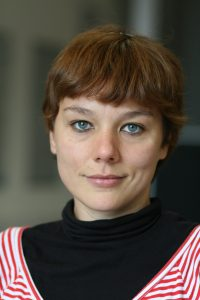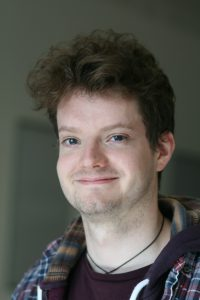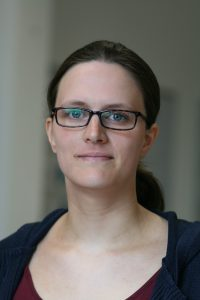We are delighted to welcome four new PhD students who are joining WIRC @ Bath, having successfully completed the WISE CDT Postgraduate School at Exeter. Here are some short biographies and information on their research topics and supervisors:
Dolores Gonzales
PhD Project: Biosensors for water quality monitoring: sensor development and signal processing
Supervisors: Dr Mirella Di Lorenzo and Prof Petra Cameron
Dolores is a Chemical Engineer with experience in the development of innovative solutions for wastewater treatment of urban and industrial effluents, both in industry and academia.
She took her degree at Complutense University of Madrid and at DTU (Denmark). She specialised in biotechnology and electrochemistry. Her Masters thesis focused on the development of Microbial Fuel Cells for sludge treatment. It was a breakthrough in her career as she decided to focus in using electrochemistry and bioelectricity to improve and complement waste water treatment. It was published as a paper in Water Science and Technology: “Submersible microbial fuel cells for electricity production from sewage sludge”.
Gwyn Hennessey
PhD Project: Beach Erosion and Recovery
Supervisors: Dr Chris Blenkinsopp, Dr Nick McCullen, Prof Ian Turner and Dr Eli Lazarus
Prior to joining the WISE CDT programme, Gwyn graduated with a BEng in Civil and Environmental Engineering at Cardiff University and following this an MSc in Environmental Engineering from Queens University Belfast.
During his Masters, Gwyn completed several projects regarding the remediation of contaminated land, contaminant transport and renewable energy strategies for existing buildings. In addition, he completed modules in fields such as Hydrogeology, Modelling of Contaminant Transport, Coastal Engineering, Tidal Energy and Waste Management.
Levke Ortlieb
PhD Project: Understanding small scale bubble generation and their applications in water and wastewater treatment
Supervisors: Dr John Chew and Dr Jannis Wenk
In 2014, Levke graduated with a trinational Bachelor of Physics from Saarland University, Université de Lorraine and Université de Luxembourg. For her Bachelor’s thesis, she studied the diffusion of micro-particles in the presence of self-propelled micro algae. In particular, Levke analysed cell trajectories using MATLAB and compared the statistics to normal diffusion.
After this Levke obtained a two-year Master degree in Physics at Saarland University. During her final year project, she continued the experimental study started while completing her Bachelor’s thesis. For this, she evaluated several numerical and theoretical models with her experimental results. During a six-month research visit at the University of Grenoble, Levke modelled the spreading of a cloud of microorganisms with a self-written C++ code. Levke has presented her results at several conferences and workshops.
Levke deserves our congratulations, as she was presented with two prizes during the WISE CDT Summer School: one for the bext academic performance, and a second award for giving the best presentation on her PhD proposal. Well done Levke!
Jack Waterhouse
PhD Project: Assessing risk to water security in complex coupled catchment-reservoir systems
Supervisors: Dr Thomas Kjeldsen and Dr Lee Bryant
Jack graduated with a BSc in Geography from Lancaster University and during the completion of the degree specialised in Catchment Hydrology and Surface-Water Quality.
A final year dissertation project explored the link between longitudinal dispersive behaviour of headwater stream channels and diffuse Nitrogen and Phosphorous pollution from agricultural sources. The project aimed to link the adjective and diffusive transport characteristics of several stream reaches to related dead-zone characteristics using ADZ modelling.
Jack is interested in carrying out further work into modelling and analysis of pollutant transport in river channels, especially in the capture and analysis of high frequency monitoring data to study extreme hydrological events and their impacts on pollutant dynamics at better resolutions – in order to prevent and mitigate the impact.
Respond




